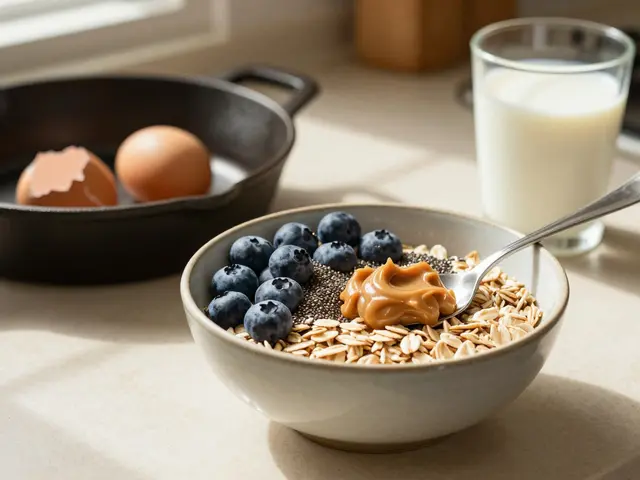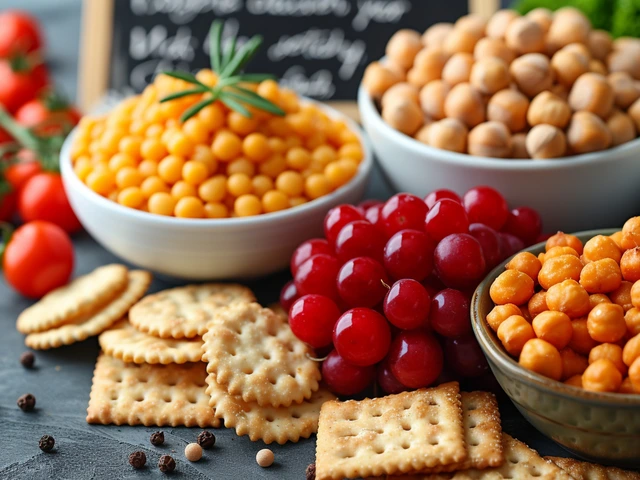Most people walk around feeling off, tired, maybe even a bit foggy, blaming their busy lives or lack of sleep. Very few stop to think: “Maybe it’s my gut.” Not just your stomach—your entire digestive system. Your gut doesn’t only digest food; it quietly orchestrates your whole body’s mood, weight, energy, and even your immune system. Today, doctors call it the “second brain.”
People try cutting sugar, going gluten-free, and running endless miles, but still feel sluggish. The missing puzzle piece hides in your tummy. The National Institutes of Health says about 70 million Americans struggle with some kind of digestive trouble each year. That’s a whole lot of discomfort, from mild bloating to full-on pain. But here’s the wild part: your gut isn’t just a food processor—it’s more like an engine room running everything from your serotonin levels to how clear your skin looks. Get your gut health in shape, and your life transforms in ways most people never expect.
The Surprising Power of Your Gut
The gut is more powerful than most of us imagine. It's home to trillions of bacteria, fungi, and other microorganisms—collectively called your microbiome. This tiny universe inside your digestive tract plays a starring role in breaking down food, soaking up nutrients, and keeping your immune system strong. If you get sick often, feel low, or notice your skin acting up, it might be your microbiome waving the red flag. According to researchers at the University of California, San Diego, over 90% of the body’s serotonin—a chemical that affects mood and sleep—is produced in the gut. So, when your microbiome is out of balance, your mental outlook can drop, too.
Think of your microbiome like a garden: wild, diverse, and needing the right care. Feed it well, and lush health blossoms. Starve it or bombard it with junk food, and weeds (bad bacteria) take over. This leads to digestive trouble, feeling tired, unexplained aches, and catching every cold around. Interestingly, your gut lining covers more area than a tennis court when spread out, and its thin barrier is crucial—it decides what gets absorbed into your blood. When this barrier gets ‘leaky’ (the infamous “leaky gut”), undigested food and toxins can slip through, triggering inflammation across your body.
One important number: 70% of your immune cells live in your gut. That’s why issues like frequent colds, allergies, or autoimmune problems sometimes trace back to poor gut health. In a 2021 study from King's College London, people with diverse gut bacteria enjoyed stronger immunity, healthier weights, and better sleep. Strong gut? Strong life. But it’s not just physical—your gut actually communicates with your brain along what's called the gut-brain axis. In plain English: when your gut feels good, you usually do, too.
“All disease begins in the gut.” — Hippocrates
Modern science actually backs up what ancient healers believed. Ignore your gut at your own risk—nurture it, and the benefits ripple into every part of your life.
| Healthy Gut Benefit | What Improves |
|---|---|
| Balanced Mood | Stable emotions, less anxiety |
| Strong Immunity | Fewer colds and infections |
| Better Metabolism | Manage weight, fewer cravings |
| Clearer Skin | Less acne, calmer complexion |
| More Energy | Less fatigue, better workouts |
| Restful Sleep | Deeper, longer sleep cycles |
This all sounds great… until you realize not every gut fix is created equal. Some approaches float around the internet promising miracle cures, but what works is much simpler than you might think.

Practical Ways to Boost Your Digestive Health
So, where do you start if you want a happier gut and all those life-improving benefits? First, cut through the noise. Probiotics, kefir, kimchi—they’re suddenly everywhere, right? While those can help, real transformation starts with some less glamorous habits. Here’s what actually matters on a daily basis:
- Eat More Fiber: Not exactly headline news, but fiber is the superstar your gut LOVES. Beans, lentils, berries, artichokes, and even popcorn keep everything moving and feed good bacteria. Most Americans only eat about 15 grams a day, but the sweet spot is around 25-30 grams. Increase slowly—going from zero to sixty might lead to bloating.
- Limit Ultra-Processed Foods: Those science-lab snacks, colored sodas, and boxed desserts? They kill off beneficial microbes and feed the ‘bad’ kind. You don’t have to be perfect, just rethink how often you reach for these.
- Diversify Your Diet: The more types of plants you eat, the richer your microbiome. One study found people eating 30+ types of plants a week had the healthiest guts. This doesn’t mean only salads; herbs, beans, grains, nuts, even spices count.
- Slow Down and Chew: Wolfing food down stresses your digestive system. Pause, take smaller bites, and actually enjoy your meal. This gives enzymes a chance to work.
- Hydrate Properly: Water isn’t glamorous, but your entire digestive system depends on it. Dehydration can lead to sluggish digestion and headaches.
- Get Moving: No need for marathon training. Even a 20-minute walk after meals can help manage blood sugar, gas, and bloating, according to Mayo Clinic research from 2023.
- Manage Stress: Gut and brain chat constantly. When you’re stressed, digestion slows, cramping can spike, and beneficial bacteria decrease. Try simple breathwork, yoga, or just regular Netflix unwinding. Pick whatever chills you out.
- Consider Prebiotics and Probiotics: Prebiotics are fibers that feed friendly bacteria (think bananas, onions, garlic). Probiotics introduce new good bacteria (like in live yogurt or fermented pickles). If you’ve had frequent antibiotics, probiotics can help balance your microbial lineup, but don’t shell out for expensive pills without checking with your doctor first.
- Get Enough Sleep: Poor sleep throws off your whole microbiome and increases ‘leakiness’ in the gut lining. Aim for quality, not just quantity—7-8 hours is the sweet spot for most adults.
Here’s a quick list of easy swaps you can make today:
- White bread → Sourdough or whole grain
- Soda → Sparkling water with a squeeze of citrus
- Candy bars → Greek yogurt with berries
- Chips → Roasted chickpeas with sea salt
- Pasta → Lentil or chickpea pasta for extra fiber
Don’t forget the simple things: wash your hands before you eat, handle stress with real techniques, and keep up regular movement. The gut isn’t just a passive tube—it’s an ecosystem with billions of little helpers, and they need you to steer the ship.

Real-World Gut Health Success Stories and Modern Insights
You don’t need to be a scientist or nutritionist to notice how much gut health changes the game. Take Anna, a 45-year-old accountant, who spent years chasing one diet trend after the next. She skipped breakfast, drank loads of coffee, and rarely saw veggies. Her complaints: low mood, mystery aches, and endless afternoon crashes. After working with a gastro dietitian, she added oats at breakfast, snuck lentils into soup, and swapped her sweetened yogurt for the plain, tart kind. Two months in, she wasn’t just less bloated — her energy was way up, her skin was clearing, and sleep came easier. Turns out, her microbiome just needed some old-fashioned TLC.
Modern tech is helping, too. Stool testing kits now let you see a snapshot of your personal microbiome and get tailored advice, though these are still in their early days. The real secret sauce is common sense: variety, fiber, and a little kindness to your digestion. The American Gastroenterological Association says antibiotic overuse is the number-one culprit for knocking gut bacteria out of whack. If you’re prescribed antibiotics, chat with your doctor about how to support your gut during and after treatment.
Kids and teens especially need a healthy gut for strong development. Processed snacks, high-sugar drinks, and not enough fruits or veggies all lead to microbiome trouble early. Getting the whole family involved—trying new veggies, swapping sugary cereals for oats, and learning to cook simple meals—pays off in smiles and stronger bodies later.
For skeptics: the science is growing by the day. According to an analysis in the journal "Cell" from April 2024, gut health connects to almost every chronic condition, from diabetes to heart disease. It even links to dementia risk. Still, you don’t have to count every probiotic or read every label to benefit. Focus on the basics: eat a rainbow, move in ways you enjoy, handle stress with real coping strategies, and get some sleep. And trust your body if something feels off; your gut is your earliest warning system.
Don’t expect overnight magic. Shifting your gut health is more like tending a garden than flipping a switch. Start with just one meal swap, an extra stroll, or a new herb in your soup, and you’ll be nudging your inner ecosystem in the right direction. That ripple effect adds up to powerful change in how you feel, think, and show up every day. Your “second brain” is ready for action—the only question is, are you willing to upgrade how you treat it?





